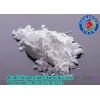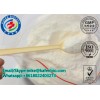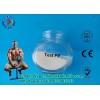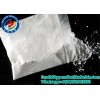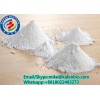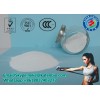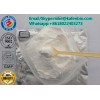Whatsapp:+8618022403273
Women Prohormones Steroids CAS 850-52-2 Progestone Progesterone Hormon Altrenogest
Basic Info.
Altrenogest
CAS No.: 850-52-2
Formula: C21H26O2
Molecular Weight: 310.47
EINECS: 212-703-1
Density: 1.15 g/cm3
Boiling Point: 495.6 °C at 760 mmHg
Flash Point: 210.1 °C
Storage: store in cool, dry, ventilated place
PackAge: Foil Bag or According to Your Requirements.
Application
Altrenogest is indicated (labeled) to suppress estrus in mares to allow a more predictable occurrence of estrus following withdrawal of the drug. It is used clinically to assist mares to establish normal cycles during the transitional period from anestrus to the normal breeding season often in conjunction with an artificial photoperiod. It is more effective in assisting in pregnancy attainment later in the transition period. One group of authors (Squires et al. 1983) suggest selecting mares with considerable follicular activity (mares with one or more follicles 20 mm or greater in size) for treatment during the transitional phase. Mares that have been in estrus for 10 days or more and have active ovaries are also considered to be excellent candidates for progestin treatment.
Altrenogest is effective in normally cycling mares for minimizing the necessity for estrus detection, for the synchronization of estrus and permitting scheduled breeding. Estrus will ensue 2-5 days after treatment is completed and most mares ovulate between 8-15 days after withdrawal. Altrenogest is also effective in suppressing estrus expression in show mares or mares to be raced. Although the drug is labeled as contraindicated during pregnancy, it has been demonstrated to maintain pregnancy in oophorectomized mares and may be of benefit in mares who abort due to sub-therapeutic progestin levels.
Altrenogest Adverse Effects/Warnings
Adverse effects of altrenogest appear to be minimal when used at labeled dosages. One study (Shideler et al. 1983) found negligible changes in hematologic and most "standard" laboratory tests after administering altrenogest to 4 groups of horses (3 dosages, 1 control) over 86 days. Occasionally, slight changes in Ca++, K+, alkaline phosphatase and AST were noted in the treatment group, but values were only slightly elevated and only noted sporadically. No pattern or definite changes could be attributed to altrenogest. No outward adverse effects were noted in the treatment group during the trial.
The following people should not handle the product:
1). Women who are or suspect that they are pregnant
2). Anyone with thrombophlebitis or thromboembolic disorders or with a history of these events
3). Anyone having cerebrovascular or coronary artery disease
4). Women with known or suspected carcinoma of the breast
5). People with known or suspected estrogen-dependent neoplasia
6). Women with undiagnosed vaginal bleeding
7). People with benign or malignant tumor which developed during the use of oral contraceptives or other estrogen containing products


